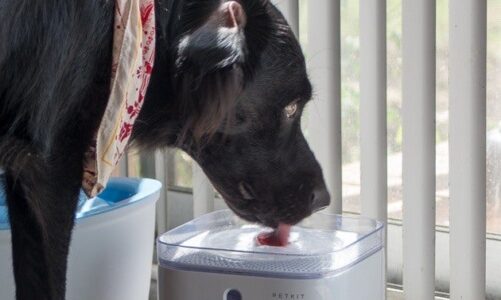Keeping your pet healthy is a top priority, and one of the most effective ways to protect them from dangerous diseases is through vaccinations. But with so many vaccines available, it can be confusing to know which ones your pet needs and when. Understanding your pet’s vaccination schedule will help ensure they receive the right vaccines at the right time for optimal protection.
In this guide, we’ll break down the basics of pet vaccinations, the difference between core and non-core vaccines, and what to expect throughout your pet’s life.
What Are Vaccinations and Why Are They Important?
Vaccinations stimulate your pet’s immune system to recognize and fight specific diseases without causing the illness itself. Think of vaccines as training for your pet’s immune system, preparing it to defend against harmful viruses and bacteria.
Without vaccinations, pets are at risk for preventable diseases that can cause serious illness, long-term health problems, or even death. Common vaccine-preventable diseases include rabies, distemper, parvovirus, and feline leukemia.
Core vs. Non-Core Vaccines: What’s the Difference?
Core vaccines are considered essential for all pets, regardless of their lifestyle or location, because they protect against severe, widespread diseases.
- For dogs, core vaccines typically include rabies, distemper, parvovirus, and adenovirus.
- For cats, core vaccines include rabies, feline herpesvirus, calicivirus, and panleukopenia.
Non-core vaccines are optional and may be recommended based on your pet’s lifestyle, environment, and risk factors. For example, a dog that spends a lot of time hiking might benefit from Lyme disease or leptospirosis vaccines, while an indoor-only cat might not need those.
Your veterinarian will evaluate your pet’s specific needs to tailor their vaccination schedule accordingly.
Puppy and Kitten Vaccination Schedule
Puppies and kittens require a series of vaccinations during their first few months to build strong immunity.
- 6 to 8 weeks: First round of core vaccines begins.
- Every 3-4 weeks until 16 weeks: Follow-up boosters ensure full protection.
- 12 to 16 weeks: Rabies vaccine is usually given to comply with local laws.
During this period, it’s essential to keep young pets away from places with many animals until they’re fully vaccinated.
Adult Pet Vaccination Schedule
Once your pet completes their initial puppy or kitten series, they’ll need booster shots to maintain immunity.
Most adult pets receive core vaccine boosters every 1 to 3 years, depending on the vaccine and your vet’s recommendations. Non-core vaccines may be given annually or as needed.
Regular wellness exams are a great time to review your pet’s vaccination status and adjust their schedule if necessary.
Special Considerations for Senior Pets
Senior pets may have different vaccination needs, especially if they have chronic health conditions or weakened immune systems. Your veterinarian will help balance the benefits of vaccination with your senior pet’s overall health status.
Common Myths About Pet Vaccinations
- Myth: Vaccines cause autism or long-term illness in pets.
Fact: There is no scientific evidence linking vaccines to autism or chronic illness in pets. Vaccines undergo rigorous testing for safety. - Myth: Indoor pets don’t need vaccines.
Fact: Many diseases can be brought into the home on shoes, clothing, or other pets, so indoor pets still benefit from vaccination. - Myth: Once vaccinated, pets never need boosters.
Fact: Immunity can wane over time, so booster shots are necessary to maintain protection.
Why Work With Your Veterinarian?
Your veterinarian is your best resource for creating a vaccination schedule tailored to your pet’s unique lifestyle and health needs. They consider factors like age, breed, medical history, and local disease risks to recommend the safest and most effective plan.
What to Expect During a Vaccination Visit
During the visit, your vet will:
- Perform a physical exam to ensure your pet is healthy enough for vaccination.
- Discuss any previous vaccine reactions or concerns.
- Administer vaccines safely and comfortably.
- Provide a vaccination record for your files.
Remember to schedule vaccinations as part of your pet’s regular wellness visits to keep their health on track.
Final Thoughts
Vaccinations are one of the simplest, most effective ways to protect your pet from serious diseases and help them live a long, healthy life. Understanding your pet’s vaccination schedule empowers you to make informed decisions and maintain their well-being.
If you’re unsure about your pet’s vaccination needs or it’s time for an update, don’t hesitate to contact your animal hospital. Your veterinarian is there to guide you every step of the way. We recommend Osso vet.




